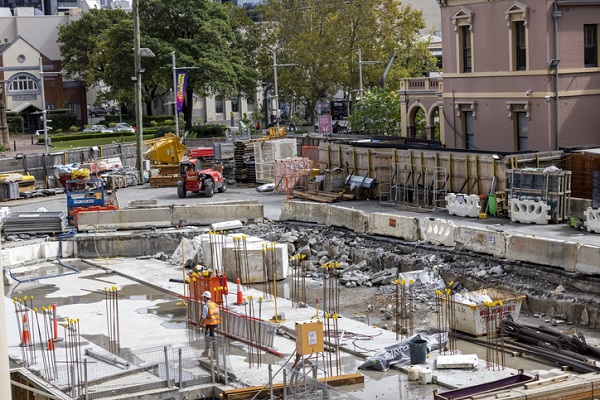How did Australia’s tradies fare for the 2022-23 Budget?
Australia’s tradies are the backbone of the economy, playing a critical role in rebuilding our country in the wake of recent natural disasters. The industry has been sandwiched between the pressure of supply chain inflation and capacity constraints caused by unprecedented demand. hipages Group chief executive and co-founder, Roby Sharon-Zipser, writes about what the budget did for tradies across the country.
From thousands in incentive payments for new apprentices and those who employ them, to 120% tax rebates for money invested into training and upskilling, and for small businesses who invest in digital technologies.
ADVERTISEMENT
At hipages Group, we create effortless solutions that help tradies streamline and grow their business, including Australia’s largest online tradie marketplace, hipages, so we’re fortunate the government has promised this support for our customers and beyond.
These initiatives are welcome recognition of the importance of the industry, particularly apprenticeship schemes which are essential for long-term industry sustainability. The downside is that it could be up to six or seven years before apprentices take on a senior role or become business owners.
We encourage the government to also consider what more can be done with immediate effect to support our industry in this high-demand environment. See my four points below.
Open the borders to skilled migrants
Bring in more tradies. It is that simple. The Government needs to fully open the borders for immigration now and incentivise international tradies to come and work in Australia’s residential sector, or we risk the tradie industry stalling and economic growth stagnating.
As a result of the government staged border reopening in November last year, one million people have entered Australia. While great to see a boost in tourism and families reunited, only 70,000 are skilled migrants and only a small portion are tradies.
Current demand for tradies among Australian homeowners is far outstripping supply. The fastest way to combat this is by opening the border to skilled tradie professionals, not in a slow, phased rollout, but immediately. We need to open the floodgates, while of course ensuring they are licensed and trusted professionals.
Incentivise tradies to focus on residential work
Australians need homes and the unprecedented demand is crippling tradie small businesses as they struggle to keep up. The government’s commitment to a 10-year roadmap of $120 billion in infrastructure projects across road, rail and communities will further skew the imbalance of our residential versus commercial tradies.
These infrastructure projects are set to create 40,000 plus jobs across the country. Unless borders are reopened and there’s an influx of skilled tradespeople, skilled tradies will be taken away from residential projects, increasing pressure on an already struggling industry. The government needs to incentivise tradies to prioritise residential work to cope with the pent-up demand, with local tradies supplemented by skilled overseas workers.
Further support for digitisation to improve industry efficiency
Tradies are pedalling so fast that they haven’t had the opportunity to digitise their business and free up time for more hands-on, profitable activities. We are pleased to see the government has announced support for small businesses that are investing in upskilling and digitalisation.
Labelled the Technology Investment Boost, businesses will be able to claim a bonus 20% deduction for the cost of expenses contributing towards digitalisation, from accounting to subscriptions and cloud-based services.
Homeowners are now demanding a level of sophistication in the way tradie businesses present themselves, and a lack of digitisation is a lack of efficiency that will hit them hard. We are confident that these government subsidies and incentives for technology tools will go a long way towards helping tradies run a more efficient business.
Natural disaster incentives
While a large portion of the budget has committed to an increased investment in regions, it is understood that the primary focus is on infrastructure. While that is essential, we must not forget about the homes impacted by the floods in regional areas and the hands that are needed on the ground to rebuild them.
Sadly, we’re looking at insurance events and, in some cases, there is no economic rate to protect homes. People are crying out for tradies to help but donating time also takes them away from their business operation and that has an ongoing impact.
Perhaps the government should consider incentives and rebates for tradies offering community service; with dedicated charities that could validate the jobs.
All in all, while we see the beginning of progress in easing the burden on our industry right now, there is still much to be done in the way of upskilling and better supporting our tradies and those who employ them.
-
ADVERTISEMENT
-
ADVERTISEMENT



